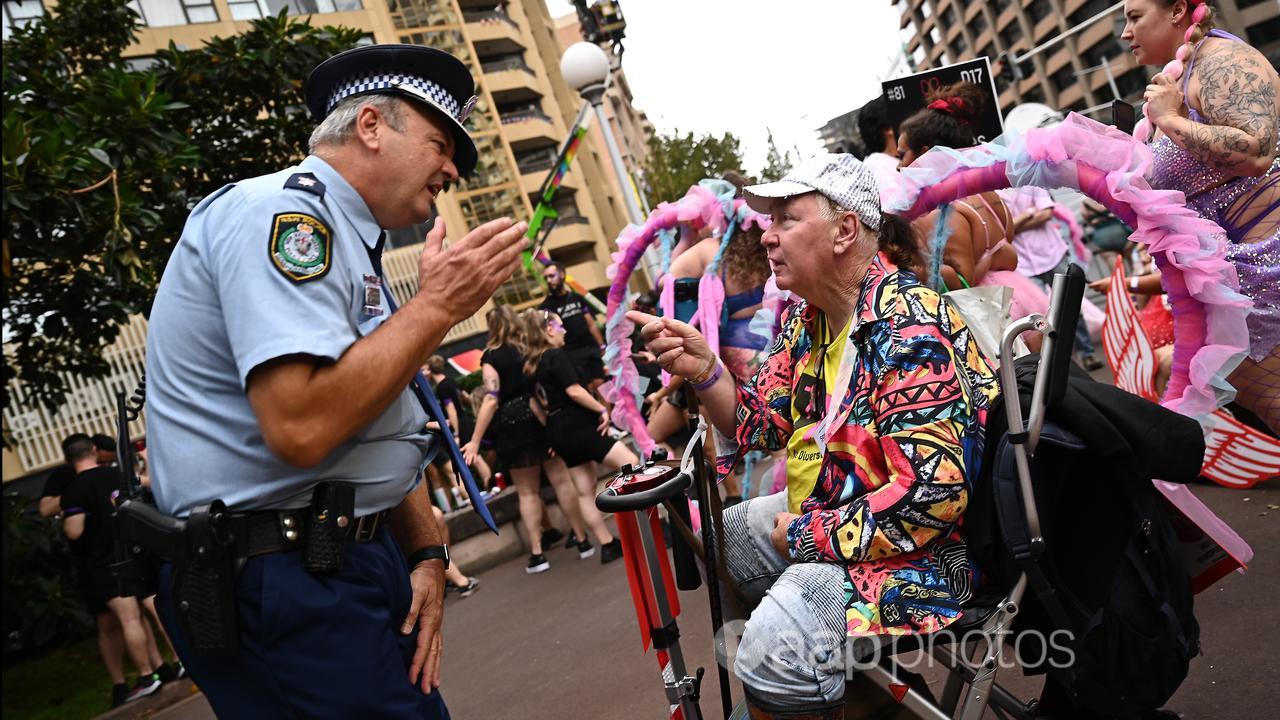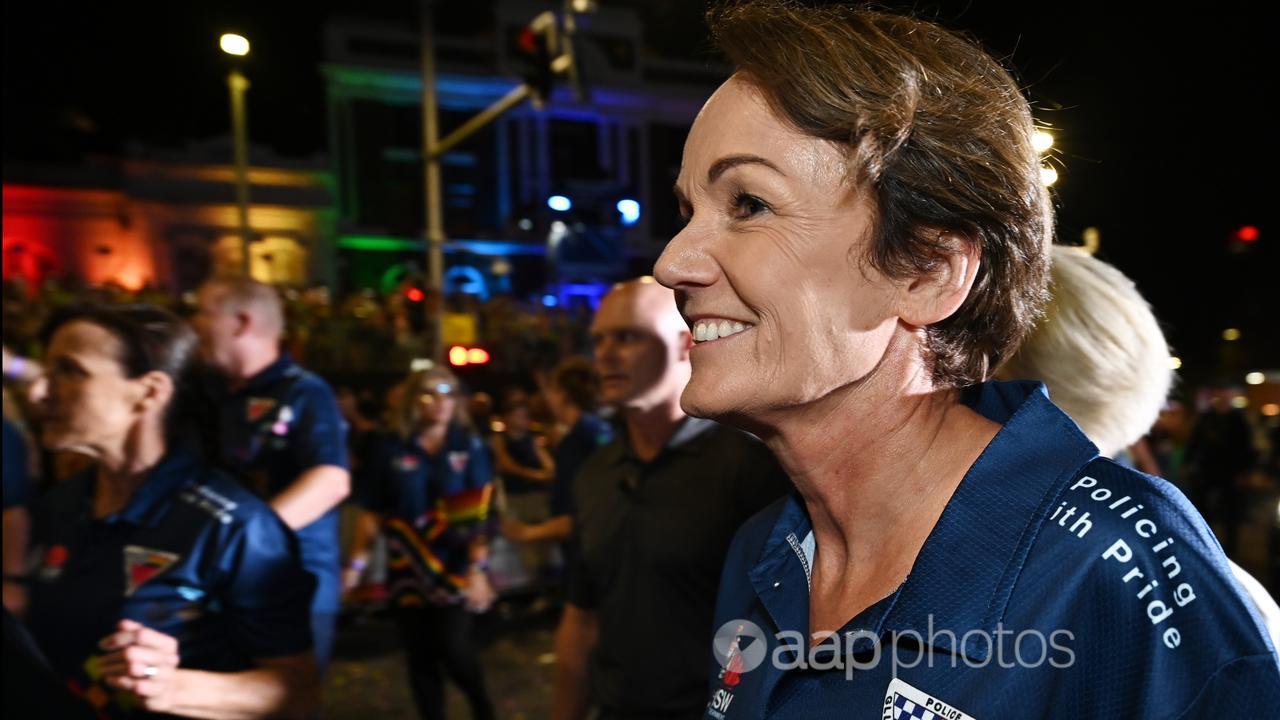Police are facing a ban from the Mardi Gras parade over concerns about the force’s sometimes-fraught relationship with the queer community.
But the NSW premier has described the move as a “slap in the face” which would only be divisive for an event designed to champion unity.
At the event’s annual general meeting on Saturday, members will vote on three resolutions on police participation in the parade after uniformed officers were banned from joining the 2024 march.
One resolution, moved by the Mardi Gras board based on community consultation, calls for NSW Police Force to be barred from marching until they “demonstrate a commitment to improving relationships with LGBTQIA+ communities”.
Uniformed members of the force have previously participated in the parade, but the invitation was rescinded in 2024 after an officer was charged with the murder of couple Jesse Baird and Luke Davies.

Officers were eventually permitted to march in plain clothes and the board’s resolution does not exclude them from marching in future events as long as they are not representing NSW Police as an organisation.
Community consultation found 54 per cent of respondents did not believe police should be allowed to march in the parade on March 1.
“The consultation highlighted there were ongoing concerns about the (force) as an organisation not demonstrating a commitment to better relationships and policing practices with our communities,” the resolution stated.
The board did not recommend how members should vote.
A second, more strongly worded resolution brought by activist collective Pride in Protest, called for police to be banned altogether.
“Members of the LGBTIQ+ community shared story after story of their own mistreatment at the hands of the police, from profiling, harassment, physical violence, wrongful detention, and more,” it read.
NSW Premier Chris Minns said it would be hypocritical to ban police when they would also be expected to provide security at the event.
“(NSW police) have radically changed in the last decades, there’s many, many gay and lesbian members that serve with distinction and regard themselves as members of the LGBT community,” he said on Thursday.
“I’d be really disappointed … it acts contrary to what’s been great about Mardi Gras, that it’s one of the big events of the year that pulls together (and) this is divisive.”
Pride in Protest spokesperson Evan Van Zijl said there were “so many reasons” police should not be permitted at Mardi Gras.
“Police are a body that continue to do ongoing harm to our community, to Aboriginal people and quite broadly,” they said.
“We have police more or less improving their brand, despite making no real change, by marching in our parade and demanding pride of place.”
A third resolution calls for LGBTQI police to be permitted to march in plain clothes.

A NSW Police spokeswoman said the force would continue working with organisers.
“The NSW Police Force is dedicated to supporting LGBTQIA+ communities and takes pride in its role as a community leader for inclusion and diversity,” she said.
Mardi Gras organisers declined to comment.
First held in 1978 as a protest against anti-gay discrimination, the Sydney Mardi Gras has grown to become one of the world’s largest LGBTQI events.
An estimated 120,000 spectators watched 12,500 participants march along inner-Sydney’s Oxford St during the latest parade.
Lifeline 13 11 14
Fullstop Australia 1800 385 578




















